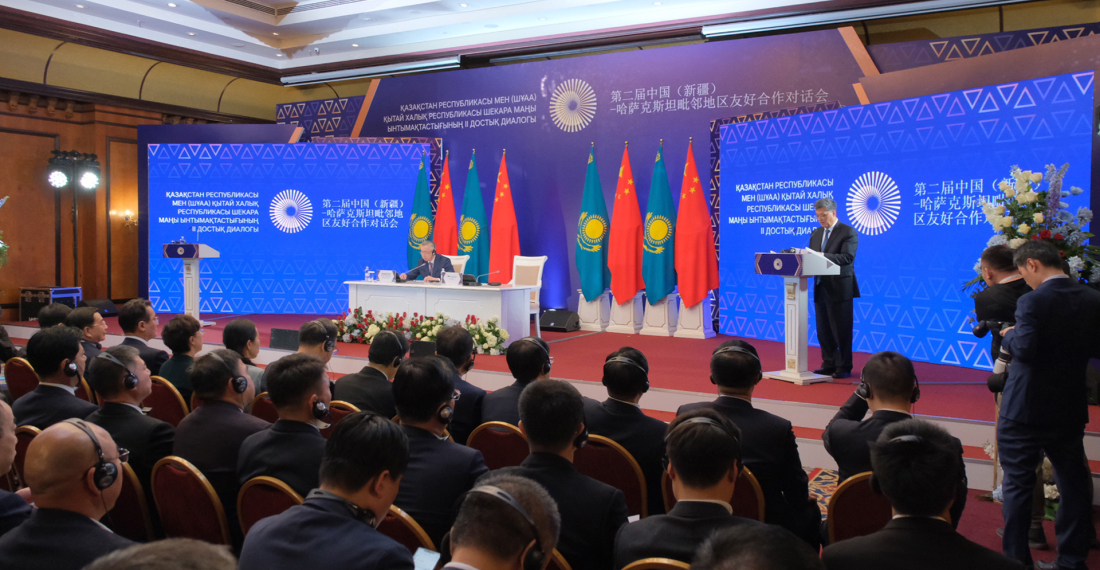On Tuesday (28 March) it was announced that Kazakh and Chinese business leaders signed 16 different documents strengthening bilateral relations. The agreements were signed on the sidelines of the "Second friendly dialogue of cross-border cooperation between the Republic of Kazakhstan and the Xinjiang Uygur Autonomous Region (XUAR) of the People's Republic of China".
The documents included six interregional agreements, five memoranda of understanding, and five commercial agreements totalling a value of $565m. The agreements cover the sectors of construction, energy, mining, agriculture, food industry, engineering, tourism, investment, and others.
The forum was held alongside a visit of the Political Bureau of the Central Committee of the Chinese Communist Party and Communist Party Secretary of XUAR, Ma Xingrui, to Kazakhstan.
At the meeting, Chinese and Kazakh officials and entrepreneurs discussed ways to improve the efficiency of checkpoints, logistics centers, and transport infrastructure along the almost 1,800km-long border.
Speaking at the event, the Kazakh Deputy Prime Minister and Minister of Trade and Integration Serik Zhumangarin said Kazakhstan is ready to export some 135 industrial and agricultural products worth over $1 billion to China, in particular chilled meat products, fish, poultry, pork, eggs and horsemeat.
Trade between Kazakhstan and China booms
2022 was an extremely good year for trade between Kazakhstan and China. Last year bilateral trade between them reached $24 billion. Kazakh imports from China increased by 33.5% totalling $11bn.
Kazakh exports to China on the other hand tripled on the previous year, totalling $13bn.







